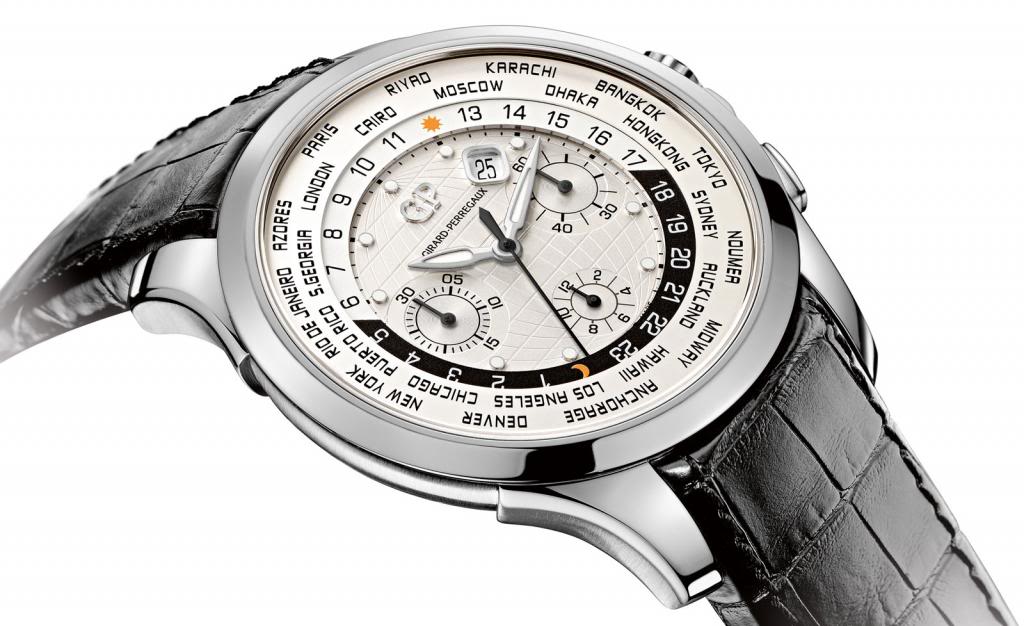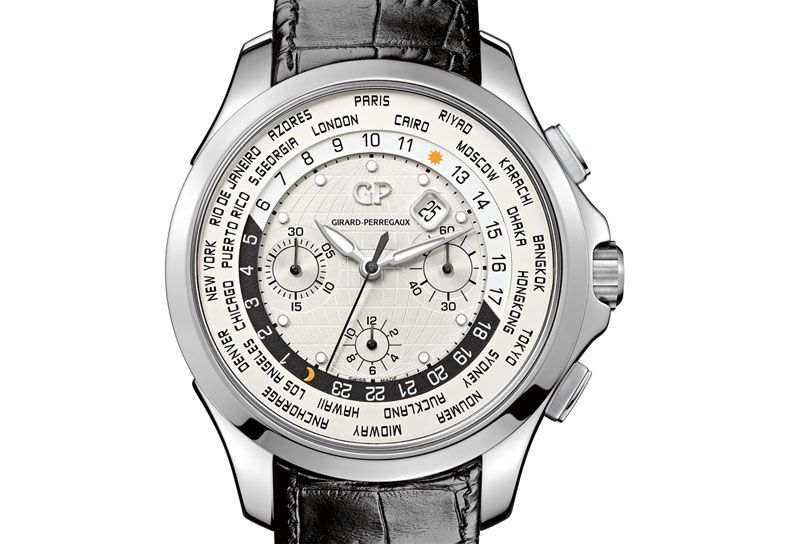Girard-Perregaux Introduces the Traveller WW.TC – the new ww.tc

Girard-Perregaux introduces a new version of the iconic WW.TC, now calling it Traveller ww.tc, still referring to the World Wide Time Control. A renewed case, a new dial design and also the way to operate it has changed.
The new left side crown of the old ww.tc has been removed from the new Traveller ww.tc and all functions can now be operated by the one crown on the right hand side of the case. This means a big step forward in usability as it makes the new Traveller ww.tc easier to operate.

The Traveller ww.tc measures 44 mm in diameter and comes in stainless steel, titanium or steel with a ceramic bezel. The case is made up of 34 elements and features polished and satin brushed parts. Inside ticks the self-winding caliber GP03300, which comprises of 476 parts, which drive the hour and minute hands, a small second hand, a world time with day/night indication, a chronograph and a date. That’s a very complete, and elegant, package!
World time did not appear until the late nineteenth century, thanks to the initiative of the Canadian engineer Sandford Fleming. Before that, each city had its own time based on observation of the sun. In the United States, there were no less than 115 official local times. In 1870 Fleming devised a worldwide system that divided the world into 24 time zones, a system progressively adopted by the whole world following a congress held in Philadelphia in 1876. It would be 1911 before the last country, France, joined up. In 1935 the Genevan watchmaker Louis Cottier made history with a watch indicating the time in the 24 time zones.
There are actually four different dials: a white/opaline and a black dial for the stainless steel version, a white with creme parts for the titanium version and a white/opaline dial with black sub dials for the steel/ceramic version. The design of the dial features a nice “globe-like” structure in the center, surrounded by a two-tone 24-hour disk that rotates around the dial in (of course) 24 hours. surrounding that 24-hour disk is a ring with cities in 24 timezones around the world.

Both the hour and minute hand are covered with luminescent material, and also dot at each hour are covered with luminescent material. This makes it possible to read the time in the dark, but only after it has been charged with light of course.
The dial displays the date in an aperture at 2 o’clock, right besides the GP logo and name. The 30 minutes counter is at the 9 o’clock position and the small second sub dial opposite at the 3 o’clock position. The 12-hour counter is placed at 6 o’clock and I’m pleased that, albeit there’s a lot of functions visible on the dial, the readability looks easy because the dial’s center is uncluttered.
A nice little, but very ergonomic, details is the extremely flexible rubber strap, covered in velvet look alligator leather, which is integrated in the case for optimum support.
The new Traveller WW.TC comes at a price of CHF 15,000 and CHF 16,000 for the ceramic version. Later I’ll show some hands-on photos of all version. For now you have to do it with these press photos. More info through the Girard-Perregaux website.
This article is written by Frank Geelen, executive editor for Monochrome Watches.




1 response
Please remove this ulgy date or at least put it at the right place/somewhere else on the dial. Didn’t the designer wonder why no other brand puts the date aperture at 1:30 o’clock? Because it just doesn’t look nice. Isn’t it kind of obvious?